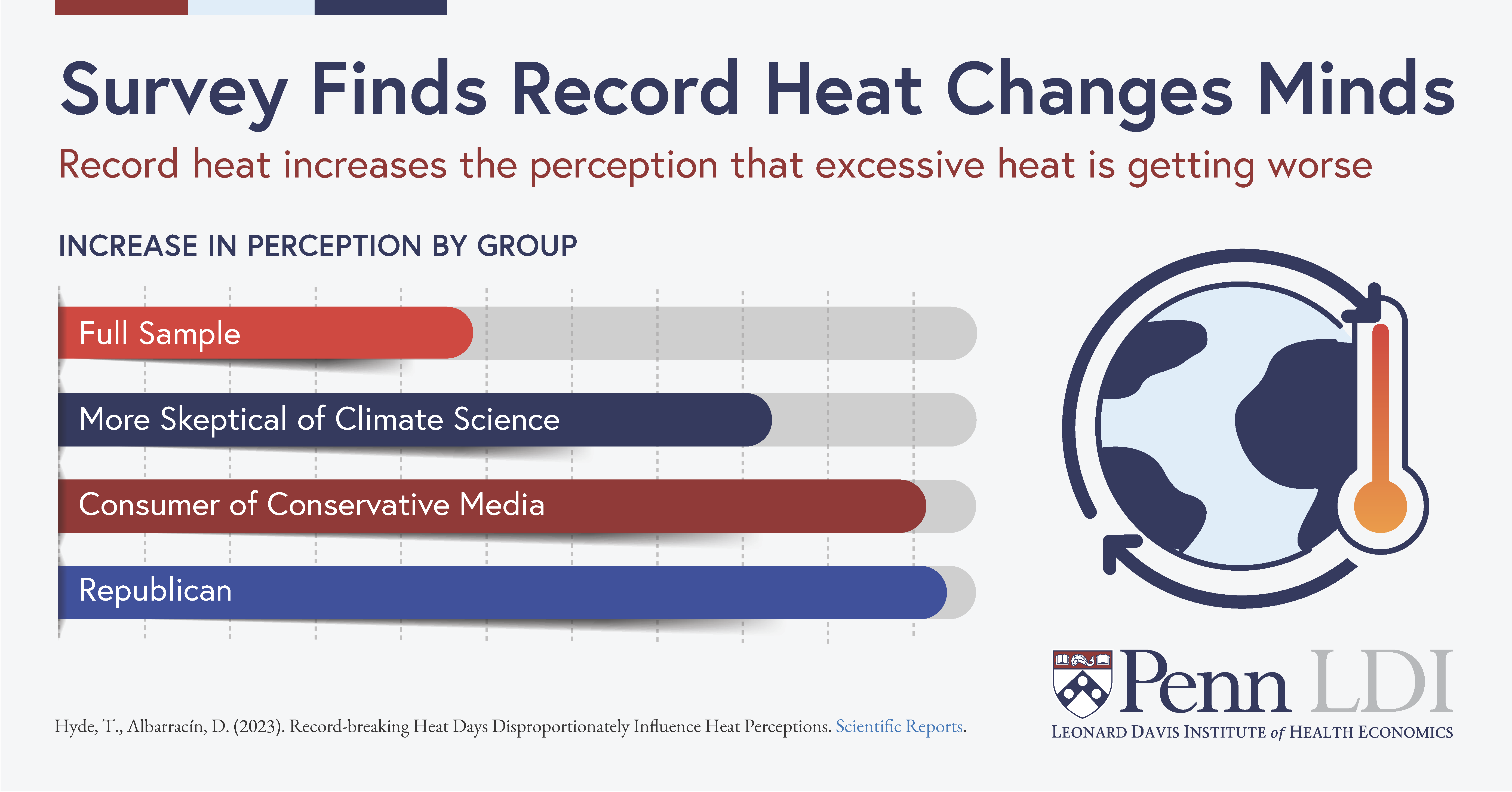
Loss of Vital Monitoring System Threatens Nation’s Health
Without Pressure From Congress, NHANES — Which Helped Uncover High Levels of Childhood Lead, Nutritional Deficiencies, and Forever Chemicals — Will Cease to Exist
Population Health
Blog Post

2023 was the hottest recorded year on Earth. Despite the scientific evidence, public perceptions of climate change are more complex to understand. Recent research by LDI Senior Fellow Dolores Albarracín and colleague Timothy Hyde sheds light on a new factor in understanding how people think of climate change: exposure to record-breaking heat. The study “Record-Breaking Heat Days Disproportionately Influence Heat Perceptions,” reveals that extreme heat events significantly raise perceptions of excessive heat in the United States. This indicates the importance of media coverage and effective communication strategies in changing opinions related to complex weather patterns. As shown in the graphic, high temperatures have the most dramatic impact on the perceptions of those who are more skeptical of climate science, consumers of conservative media, and Republicans.
Albarracín and colleagues urge the importance of customized communication strategies to effectively communicate the urgency and reality of climate change—bridging the gap between unprecedented temperatures and public comprehension.
The study, “Record-Breaking Heat Days Disproportionately Influence Heat Perceptions,” was published on October 9, 2023 in Scientific Reports. Authors include Timothy Hyde and Dolores Albarracín.


Without Pressure From Congress, NHANES — Which Helped Uncover High Levels of Childhood Lead, Nutritional Deficiencies, and Forever Chemicals — Will Cease to Exist

A Multi-State Study Finds That Parents Often Travel 60+ Miles—With Distance, Insurance, and Race Driving Gaps in Maternal Care

Cheaper Housing Could be a Way to Lower Hospitalizations Among Medicaid Patients with Heart Failure

Pa.’s New Bipartisan Tax Credit is Designed to be Simple and Refundable – Reflecting Core Points From Penn LDI Researchers Who Briefed State Leaders

Announcing Bold New Goals While Crippling the Infrastructure Needed to Achieve Them

Promising New Evidence and What’s Next